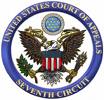More Thoughts on Marriage
Sean Samis has posted a lengthy response to my post expressing “different” thoughts on the Iowa decision on same-sex marriage. I thank him for his response and, while I think he has got it wrong, he’d get a great grade for his efforts in my Law & Theology seminar or Wisconsin Supreme Court class and so he deserves a response. Given the length of the remarks that I am about to make, I once again thought it better to post separately.
I have come to believe that the underlying presumptions of proponents and opponents of same-sex marriage are almost ontological in their differences about the nature of the law and the way in which it shapes and is shaped by society. We are all hard-wired now days to think of constitutional law as, largely, the mediation between the “rights” of individuals and the “demands” of the state. The former are seen as radically subjective, while the latter are the sum of their legal incidents. The former are not to be judged, and the latter are often examined for their “fit” without regard for their interaction with extralegal norms and institutions.
We also are steeped in an almost eschatological view of the law in which we see the claims of some new “discrete and insular minority” as analogous to those advanced during the civil rights movement and somehow validated by an Hegelian move toward “equality” and progressivism.

